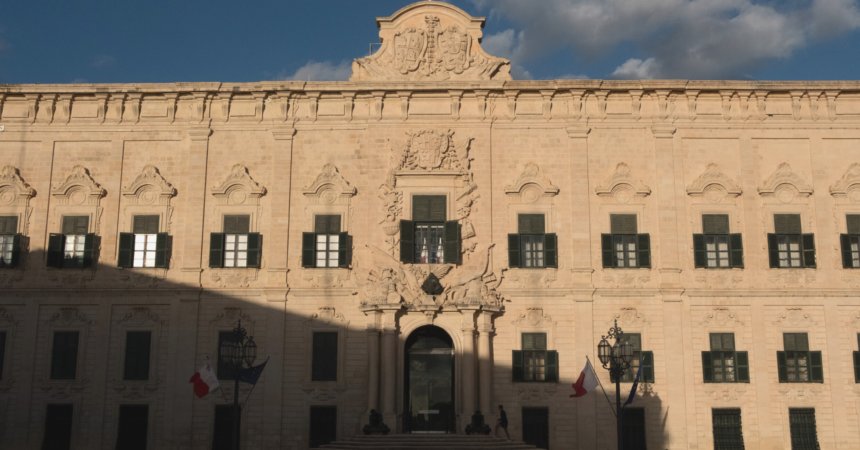The press experts committee appointed by the prime minister to implement reforms based on the conclusions of the public inquiry has confirmed that the process of reviewing the legal aspects of the government’s proposed press freedom laws was finished in April, meaning that the report has been gathering dust for the last three months.
When asked on Tuesday whether the review of the government’s proposals would be published, the committee’s government-appointed secretary, Frank Mercieca, informed The Shift that the committee will be convening on 15 July and would revert answers accordingly.
Mercieca provided that answer to two simple questions, namely whether to confirm the report was concluded and when, and whether it would be published.
Only yesterday, the Civil Liberties Committee of the European Parliament stressed when presenting the mission’s report on Malta, that the deadline for the report by the ‘media experts committee’ set up by Prime Minister Robert Abela had expired and that the EU monitoring group is still awaiting the outcome.
On the same day, The Shift’s founder and editor Caroline Muscat called committee member and IGM president Matthew Xuereb to determine the reason for the delayed answer.
She questioned why the committee, which consists largely of the editors of mainstream media outlets, needed to convene to decide what answer to provide to another independent news outlet on an issue that concerns the operations of the press.
Xuereb replied by stating that the editors involved in the committee are present largely as representatives of the IĠM, the press association.
The media experts committee consists of IGM president and Assistant Editor at The Times of Malta, Matthew Xuereb, Media Today co-owner Saviour Balzan, Malta Today’s editor Kurt Sansone, The Malta Independent Editor Neil Camilleri, University Pro-Rector for Student & Staff Affairs Carmen Sammut, Criminology professor Saviour Formosa and chaired by Michael Mallia, a former judge who was one of three handling the public inquiry on the assassination of journalist Daphne Caruana Galizia.
When Muscat pressed for answers, questioning how journalists had agreed to non-disclosure when they were negotiating laws that affect the rest of the sector and the public interest, Xuereb replied: “Watch your tone”. And then hung up.
“It is inconceivable that the head of the press association in Malta tells an editor to ‘watch your tone’ when pressed on why the members of the committee had signed up to some form of non-disclosure on information that should be made public,” Muscat said.
“Journalists should not appear to be serving the government. We work in the public interest. That’s their deal, not ours,” she added. “This behaviour serves to isolate and exclude other members of the press as well as the public from negotiations being held behind closed doors that affect us all. This is not what the public inquiry recommended.”
The committee was originally set up on 11 January, shortly after the Opposition had tabled 12 legislative proposals drawn up on the basis of the recommendations made by the Daphne Caruana Galizia public inquiry board.
Rather than taking on board the Opposition’s efforts to implement the recommendations, which had unequivocally concluded that the State must shoulder responsibility for journalist Daphne Caruana Galizia’s assassination and implement a long list of reforms, the government instead tabled its own proposals.
Notably, the government’s proposals completely excluded significant legislative changes like the creation of a special inquiring magistrate against corruption and the introduction of unexplained wealth orders which would force suspected criminals to explain how they acquired their wealth.
The government’s proposals focused specifically on anti-SLAPP legislation (forced to implement because of an EU Directive), an amendment to the Media and Defamation Act to discontinue defamation cases following the death of the defendant, an increase in the severity of punishments committed against journalists while exercising their profession, and a reference to freedom and media pluralism in the Maltese Constitution. This falls far short of the comprehensive list of recommendations that emerged from the public inquiry.
In February, ARTICLE 19’s Head of Europe and Asia team, Sarah Clarke, spoke about these proposals at an event in Malta, stating that the proposed recommendations should be revised to “fully implement the requirements of the public inquiry and entrench journalism as the fourth pillar of democracy”.














Frank Mercieca is specialised in delaying tactics meant to cover government’s lack of transparency.
The courts are in such a mess (also) because of him.
Arroganza assoluta. Kull min imiss mal-ħmieġ ta’ dal-gvern korrott jiċċappas ukoll!
Freedom of speech, Maltese style!!!